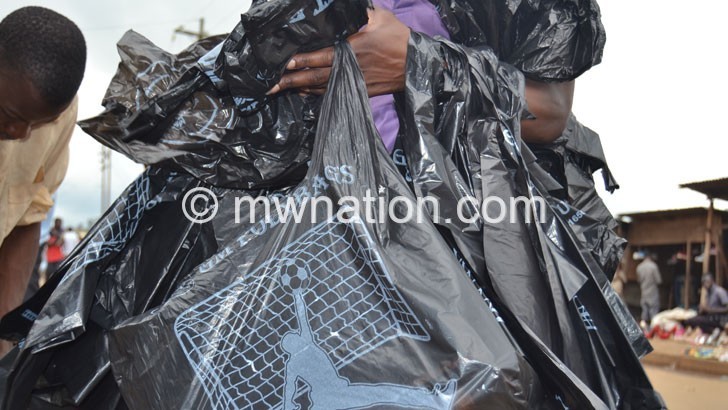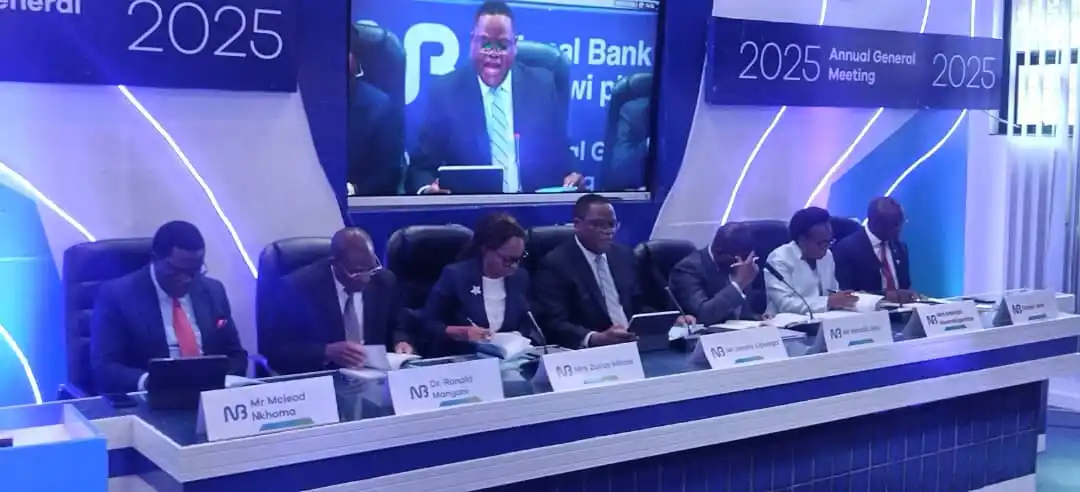
Ministry of Natural Resources and Climate Change has designated July 8 2024 as the date use of single-use thin plastics will stop in the country.
The ban on the production, importation, selling and use of the thin plastics with 60 microns is meant to protect the environment. It follows the withdrawal of an appeal of a judgement of the High Court of Malawi by one of the producers in the Malawi Supreme Court of Appeal.

Outlining the measures in Lilongwe yesterday, the ministry’s Principal Secretary Yusuf Nkungula said after July 8 all persons engaged in the manufacturing, distribution, importation, sale and use of thin plastics will be dealt with as Malawi is not a lawless country.
He said: “The Malawi Environmental Protection Authority [Mepa] will lead in enforcement of the ban and those that defy the ban risk imprisonment, fines but also closure of businesses.
“During inspections, Mepa will be testing the thickness of the plastic bags using appropriate instruments. Should any person, including manufacturers, producers, traders and dealers be found with plastics which are banned, appropriate enforcement action will be taken immediately.”
During the same briefing, Mepa board chairperson Robert Kafakoma called on Malawians to shun thin plastics when the ban is enforced.
He said: “We appeal for mindset change on thin plastic use. Because it is Malawians who are using the thin plastics.
“If we can start using other carrier bags, baskets, carton boxes, bags made from cloth, we will not have much difficulty in enforcing the ban.”
But in an interview yesterday, environmental activist Mathews Malata wondered why the government did not embark on an instant enforcement after the appeal fell off two weeks ago.
He said the period is long enough for manufacturers to release a new stock on the market which will do more harm to the environment.
“Manufacturers are aware of the ban and it should not be a problem to start enforcement immediately,” said Malata.
Meanwhile, two members of the Plastics Manufacturers Association of Malawi yesterday said there are about 20 companies in Malawi producing thin plastics and estimated that they pay about K500 million in taxes per month.
They explained that the companies produce 1 000 tonnes of thin plastics worth K5 billion per month and they have invested in machines costing K90 million each which are used to produce thin plastics but cannot be used to make plastics above 60 microns.
“With the ban, production will go down by 80 percent, sales will go down by 75 percent and eventually people will lose jobs and people who sell thin plastics will also be affected,” one said.
The members, who opted for anonymity, suggested that government should have limited the size of plastics to 30 microns and encourage proper disposal of plastics or recycling.
One of the manufacturers, Aeroplastics, feared that it will have to downsize following the ban.
According to the company’s head of human resource and administration Kingsley Kapalamula, they anticipate to lay off 50 percent of the company’s 350 workforce following the ban.
The plastic industry claims that 5 000 jobs could be lost due to the ban.








0 Comments